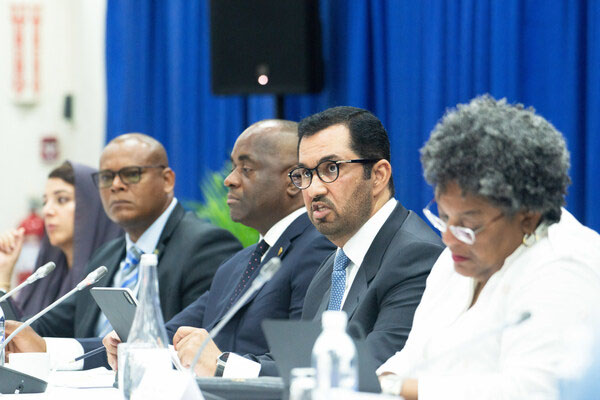While, at an earlier juncture, there appeared to have been some kind of modus vivendi between the ‘climate changers’ and the global oil giants on the need to drastically cut fossil fuel emissions in order to try to push back an imminent climate catastrophe, it transpires, or at least so it seems, that the attempt to ‘paper over’ the gap between the two sides was contrived purely to avoid a circumstance that might have scuttled last December’s COP 28 Forum in the United Arab Emirates. Moreover, if, up to this time there appears to have been no cries of ‘foul’ amongst the climate changers, there is evidence that, contrary to the view in some quarters, climate-vulnerable countries might now feel cheated.
It transpires that a recent Reuters report on what it says really ‘went down’ at the COP 28 forum was an exercise in deception insofar as the global oil giants, including the ‘heavyweights’ from the Arab countries, who were never really committed to a fossil fuel recovery reduction regime that would realize adequate reductions in emissions that continue to hasten the pace of climate change. The ‘reality’ that was being pedaled by the global fossil fuel giants was designed solely to minimize any climate change differences that might have scuttled COP 28 itself. This has, it appears, been exposed in Reuters ‘post mortem’ of the forum in which it laid claim to reliable information to the effect that none of the world’s major oil producing countries had ever intended to go along with any initiative that would interfere with their substantive fossil fuel recovery plans, going forward. That, according to the Reuters Report was a mere chimera, of what it says really ‘went down’ at COP 28.
The Reuters report suggests that while the appointment of Dubai’s Sultan Al Jabir as Chairman of COP 28 might have appeared to signal a modus vivendi between global oil giants and underdeveloped climate-threatened countries, this was no more than a mere chimera and that the global oil giants, including those in the Middle East, North America, Europe and Asia have no intention to go down the road of a fossil fuel phase-out as part of a wider net zero push. “None of the world’s major oil and gas-producing countries have plans to eventually stop drilling for those fuels, despite many having pledged to reach net zero emissions,” Reuters says, citing data shared with it as evidence that COP 28 notwithstanding, the world’s major oil producers are altogether disinterested in going down the fossil fuel recovery reduction road.
Reuters’ disclosure is supported by the so-called Net Zero Tracker, a data consortium which reportedly says that the revelations have “laid bare the gap between the targets countries have set to avoid disastrous levels of climate change and their real-world plans to continue producing CO2-emitting energy.” The revelation will probably come as a major disappointment to the Caribbean which had not only entertained a diplomatic demarche by Sultan Al Jabir prior to the staging of COP 28 but had also gone to the COP 28 summit in Dubai seemingly anticipating that there might be a softening of the customary hardline the oil producing countries in the Middle East, particularly, have traditionally taken on climate change and fossil fuel recovery.
The position of the Middle East ‘oil giants’ has been seized upon by Oxford University researcher Natasha Lutz who questions the “proliferation of a net zero ambition… without the commitment towards fossil fuel phase-out” an inconsistency which, she is quoted as saying, “highlights the need for entities to determine how these targets will be achieved.” Keen, it seemed, not to host a major climate conference in the Middle East where delegates from countries that are particularly vulnerable to climate change might continually rail against higher levels of fossil fuel recovery, Dubai and the various other oil heavyweights in the Middle East appeared to have undertaken a far-reaching diplomatic demarche to woo developing countries, including the Caribbean, into accepting that Dubai was not averse to complying with global initiatives that would push back a fossil fuel-driven climate change threat.
As it happens, by the end of the Summit, University of Oxford Researcher, Natasha David, had pointedly raised the issue as to just how the proliferation of the ‘net zero’ regime could be realized “without a commitment towards fossil fuel phase-out”. Tellingly, Reuters reports that the data to which it secured access to indicated that sixty nine of the world’s oil producing countries, including global giants Saudi Arabia, the United States, Russia, China and the United Arab Emirates, have pledged to reach net zero emissions though only three minor producers among developed countries, namely, Denmark, Spain and France have set out plans to eventually stop drilling.
All of this is being assessed against the backdrop of a pronouncement made recently by Chairman of the United Nations Climate Science panel Jim Skea during which he asserts that, by 2050, global oil use must drop by 60% and gas use by 45%, if the world is to avoid temperatures increasing above 1.5 degrees Celsius – the threshold beyond which climate change would unleash more disastrous and irreversible impacts.





